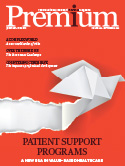Mental health care covered: NF

National Friendly has decided to offer cover for mental health care, a line of business that is not often visited by insurance companies. Statistics published by the Mental Health Foundation, the UK’s charity for mental health, suggest that in England, women are more likely than men to have a common mental health problem and are almost twice as likely to be diagnosed with anxiety disorders, with one in five meeting the NHS criteria of a “common mental disorder.” At the same time, UK insurer National Friendly’s data for the whole of 2017 and 2018, agrees that women are more likely to make a claim for a mental health disorder on its policies, with stress being one area where professional medical support is sought.
In a separate study, Agenda, the alliance for women and girls at risk, reports that 75 percent of mental health issues are established before the age of 24, whilst for National Friendly, the average age of a claimant is more likely to be between the ages of 40 and 50.
Commenting on this pattern, Wayne Carter, head of Sales and Marketing at National Friendly said, “Whilst the evidence presented by organisations such as Agenda points to an issue emerging early in a woman’s life, we as insurers tend not to see that manifesting itself as a claim until much later on. We cannot say for sure why this is, but it could be because of the perceived difficulty of trying to access professional support via the NHS as a younger person. Older adults may be more likely to have the confidence and life skills to be able to act to seek help.”
According to a report from the Royal College of Psychiatrists published last year, a quarter of the 500 patients who took part in their survey drawn from across the UK, waited more than three months to see a NHS mental health specialist. Six percent had waited at least a year.
Carter added, “Not only can insurers such as ourselves offer a simpler route to mental health care support, it can also be substantially faster than waiting for NHS care, which in turn can help to alleviate suffering.”





































